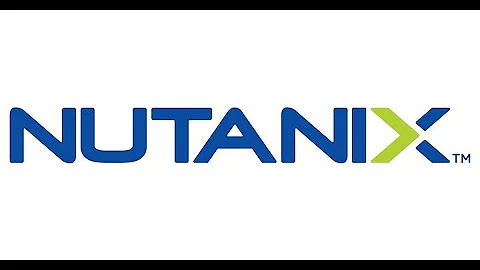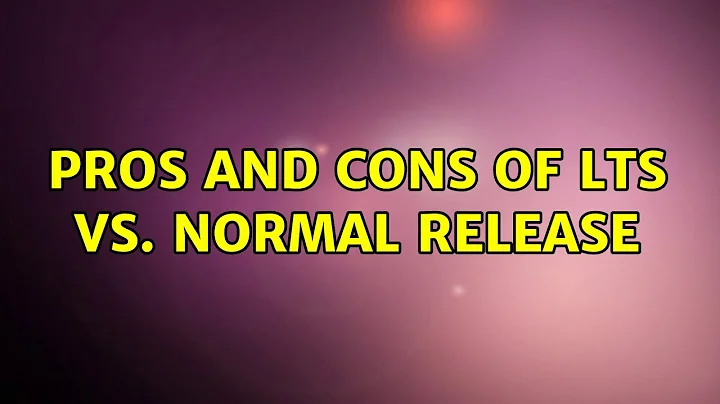Pros and Cons of LTS Vs. Normal Release
Solution 1
Machines more suitable to long term support releases will generally be business machines (such as web-servers in datacentre's or servers in a workplace). These machines it would be generally disruptive to be upgrading the operating system every 6 months as opposed to every 3 years! When it is essential to keep the downtime to a minimum, time is money!
Generally a long term support distribution will have constant security fixes and the like to keep the system stable, but no MAJOR application changes. A lot of the time for a fileserver sitting in an office with no screen won't benefit from that new version of firefox or that extra wallpaper.
In your situation, if you want the latest software, stick to recent ubuntu releases. The fact that you're not a fan of unity doesn't mean you have to use an older version of ubuntu as you are fully aware. When you first get to the login screen after installation, change the drop box at the bottom of the screen to ubuntu classic. This will ensure you've got the latest software, security fixes, efficiency fixes, and a few extra toys to play with that have come out of that extra year's worth of development!
I do find it unimaginably odd that even though you know about that feature you'd rather use an LTS verison. LTS suuport lasts for 3 years on a desktop and 5 years on a server, wheras it's normally 18 months for standard release. This means that both 11.04 will "expire" after ubuntu 12.10 and ubuntu 10.04 LTS will "expire" after ubuntu 13.04 respectively.
So for you, an extra 6 months worth of life on the more "stable" operating system? Or cutting edge?
Enjoy your Ubuntu!
EDIT: Here's a link for anyone else reading this showing you how to switch to classic desktop after installation: Nixie Pixel - Change back to the Classic Gnome look
Solution 2
The two thing you might be missing is new hardware support and newer software like Firefox 6. The latter can be dealt with by manually updating the most used applications from PPAs, while the former is more more difficult - you need to upgrade the kernel. All in all, if the computer you use is not new, 10.04 is a very good release to stick with.
Related videos on Youtube
Dananjaya
Updated on September 18, 2022Comments
-
Dananjaya over 1 year
Possible Duplicate:
What's the difference between a Long Term Support Release and a Normal Release?I installed Ubuntu 10.04 (LTS) today. At the moment, I do not wish to upgrade to 10.10 nor 11.04 because I'm not a big fan of Unity and the new GUI. (I'm aware of the Gnome Classic option in 11.04) Since I'm using a LTS version, rest assured I will be receiving updates to Ubuntu until April 2013.
So my question is what am I missing by using an LTS? What kind of updates LTS version receives compared to the normal release? Are they just security updates?




